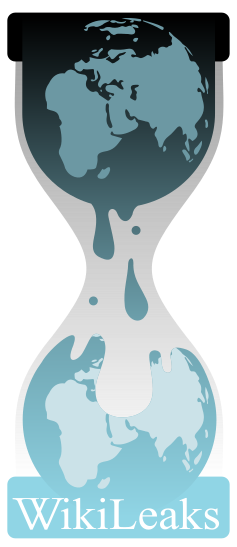 There is an irony that the first person to coin the phrase "The first casualty of war is the truth" was a US Republican senator, Hiram Warren Johnson, in 1918.
There is an irony that the first person to coin the phrase "The first casualty of war is the truth" was a US Republican senator, Hiram Warren Johnson, in 1918.The Wiki leaks saga currently being played out online is all about truths and war and who should be held responsible (and who would rather avoid responsibility).
I am rather ambivalent about the Wikileaks site and have rarely viewed it. However one of its strengths is that it has proved without doubt, the duplicity of diplomacy; what has been said publically is often at complete variance to what is being shared in private.
The Wikileaks site provides a public service in providing balance to the often sanitised media coverage of global events.
Were they unwise to put up content such as a hit list of potential terrorist targets, as identified by governments? Probably, as the greater public good is not served by such exposure. But who determines this 'public good' ? This is the crux of the argument that is raging.
Make no mistake, this is a cyber war like no other. It is not simply the activities of the 'Anonymous' supporters who are currently promoting Operation Payback that are the primary focus of governmental wrath.
It is not even about Wikileaks spokesman Julian Assange, who is facing rape charges in Sweden. These charges are apparently based on circumstantial evidence and the word of one party against another. A suspicious mind might conclude that the Dirty Tricks brigade have been active in getting such a prosecution on the books; again not an unusual development in a war situation.
This cyber war is about who controls the internet and if it can be controlled? Attempts to shut off Wikileaks money supply and block their domains are unlikely to succeed as the ground swell of netizen support is growing.
At time of writing there are at least 1,200 "mirror sites" on the Net hosting WikiLeaks content and this number is growing by the hour.
'Anonymous' is deploying botnets which bombard sites that are siding with government directives. In the past these botnets have been used by criminals to take over computers but in this case owners are downloading the software and installing it voluntarily.
Twitter has shut down the trending capability of #wikileaks although it denies that this has anything to do with governmental pressure. Their explanation:
"Twitter Trends are automatically generated by an algorithm that attempts to identify topics that are being talked about more right now than they were previously. The Trends list is designed to help people discover the 'most breaking' breaking news from across the world, in real-time. The Trends list captures the hottest emerging topics, not just what’s most popular. Put another way, Twitter favors novelty over popularity ".
As the chart right shows, topics related to Wikileaks such as "wikileaks founder" still feature in the trends.
Mainstream media have been following the Wikileaks story and a few, such as The Guardian , are featuring real time updates of cable releases.
The final word should perhaps go to The Economist who earlier this month published an article under the title " Missing the point of WikiLeaks"
"The basic question is not whether we think Julian Assange is a terrorist or a hero. The basic question certainly is not whether we think exposing the chatter of the diplomatic corps helps or hinders their efforts, and whether this is a good or bad thing. To continue to focus on these questions is to miss the forest for the texture of the bark on a single elm. If we take the inevitability of future large leaks for granted, then I think the debate must eventually centre on the things that will determine the supply of leakers and leaks. Some of us wish to encourage in individuals the sense of justice which would embolden them to challenge the institutions that control our fate by bringing their secrets to light. Some of us wish to encourage in individuals ever greater fealty and submission to corporations and the state in order to protect the privileges and prerogatives of the powerful, lest their erosion threaten what David Brooks calls "the fragile community"—our current, comfortable dispensation."


